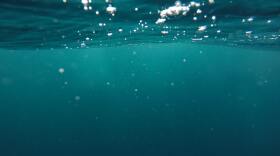-
For at least one water utility in Central Florida, PFAS settlement payments are starting to arrive.
-
Officials say drinking recycled, thoroughly-treated wastewater is perfectly safe but there are also psychological hurdles.
-
As of this year, Florida rules allow for reclaimed water, or recycled wastewater, to be treated and distributed for drinking.
-
Recent sampling showed levels above the EPA’s action level of 0.015 milligrams per liter in more than 10% of homes tested. That exceeds the federal Lead Action Level established by the EPA.
-
Researchers looked at a group of students and checked how much fluoride they drank from birth through high school. They then compared this to how the students did on math, reading and vocabulary tests.
-
Testing at a well in Tarpon Springs was nine times the limit. A well in Holiday measured 19 times the limit. The science is unclear as of yet as to the health risks of drinking water contaminated with "forever chemicals."
-
By the year 2045, demand for water in the region will be up 41%, according to the Central Florida Water Initiative.
-
While some are worried about impacts to personal health and local businesses, others are thinking about disclosures within the real estate market.
-
The Canadian city reversed its fluoridation decision after child cavities surged. Is Florida, facing dental shortages, repeating the same mistake?
-
An AP review found nearly 70% of the parks that run their own systems violated safe drinking water rules over a recent five-year stretch. That's higher than utilities that supply water for cities and towns.
-
The city said it believed the November samples were flawed and did not take further action. The Florida Department of Environmental Protection objected and told the city to retest, which it did last month.
-
The water supplier for Hillsborough, Pinellas and Pasco counties doesn't yet know how much it'll cost to get slightly elevated levels of PFAS filtered out of a few of its water sources.
Play Live Radio
Next Up:
0:00
0:00
Available On Air Stations










